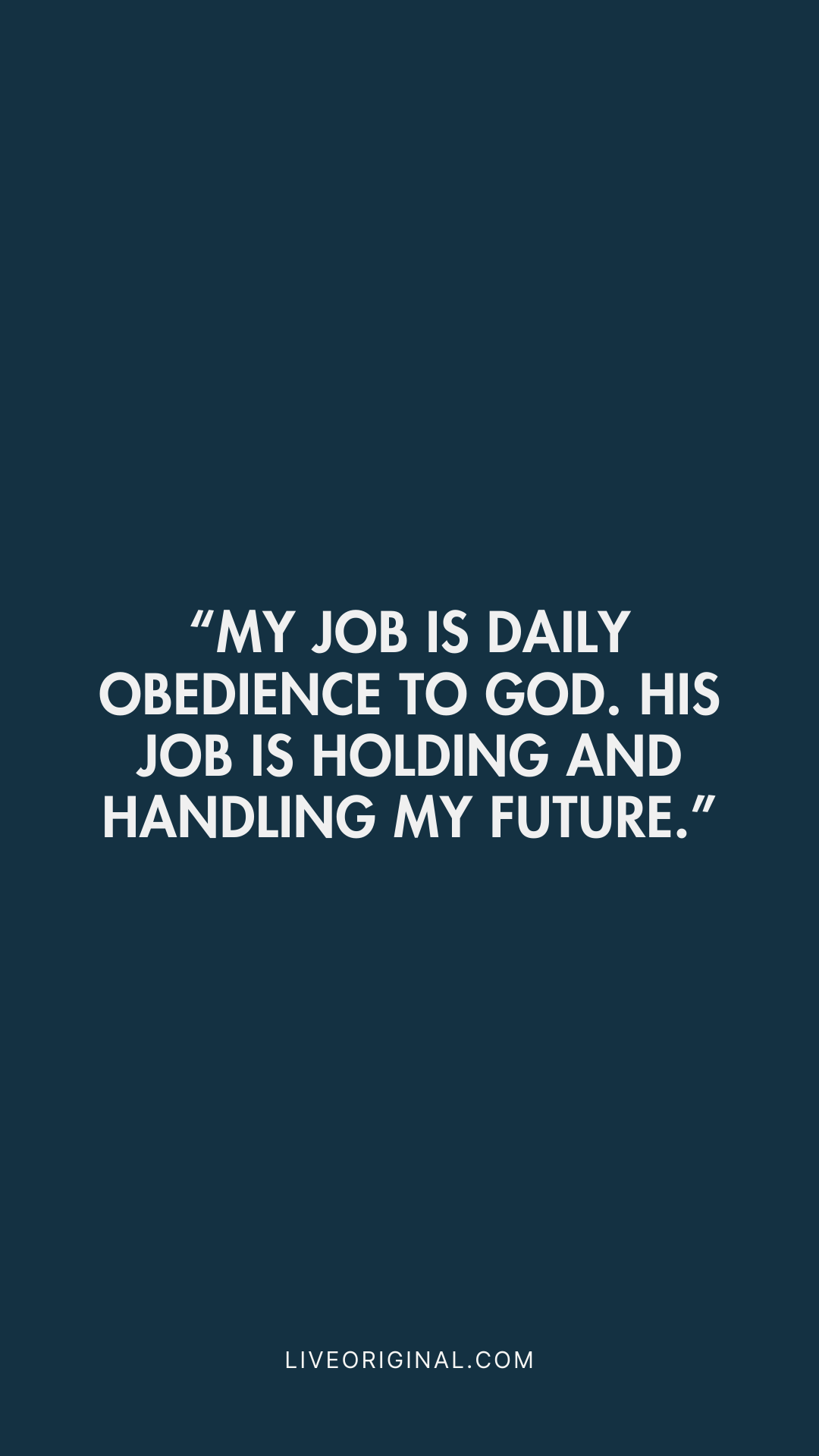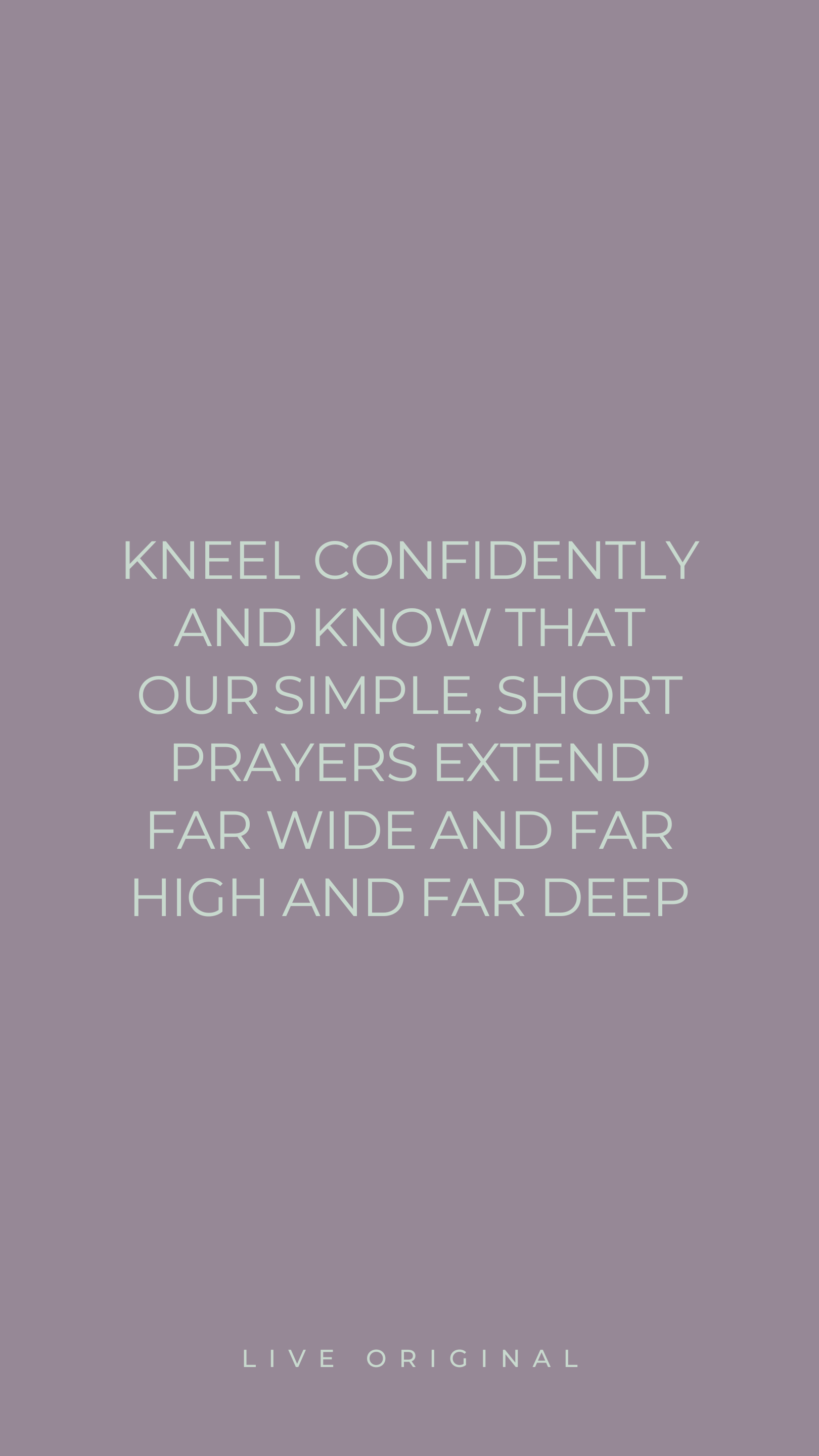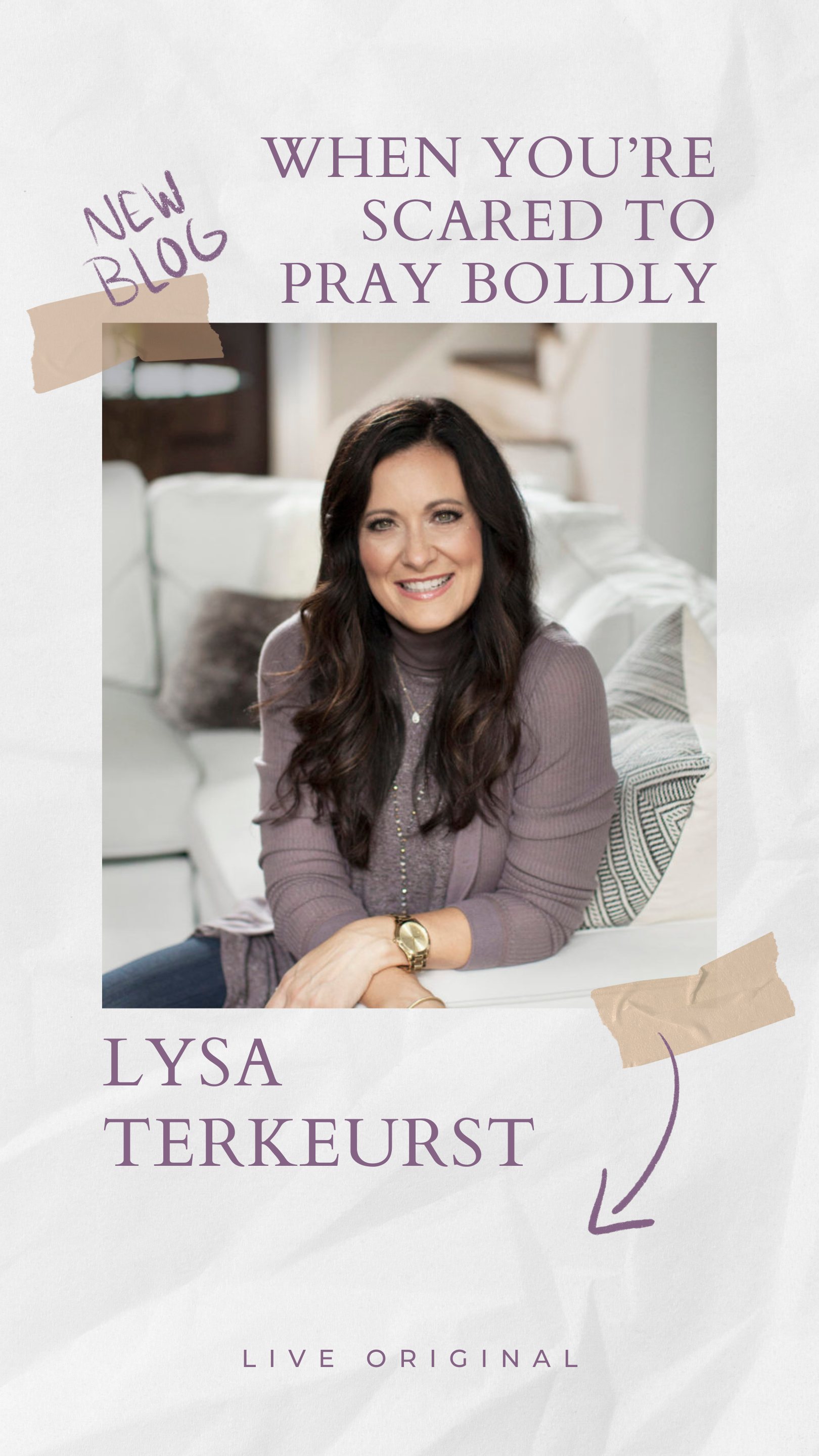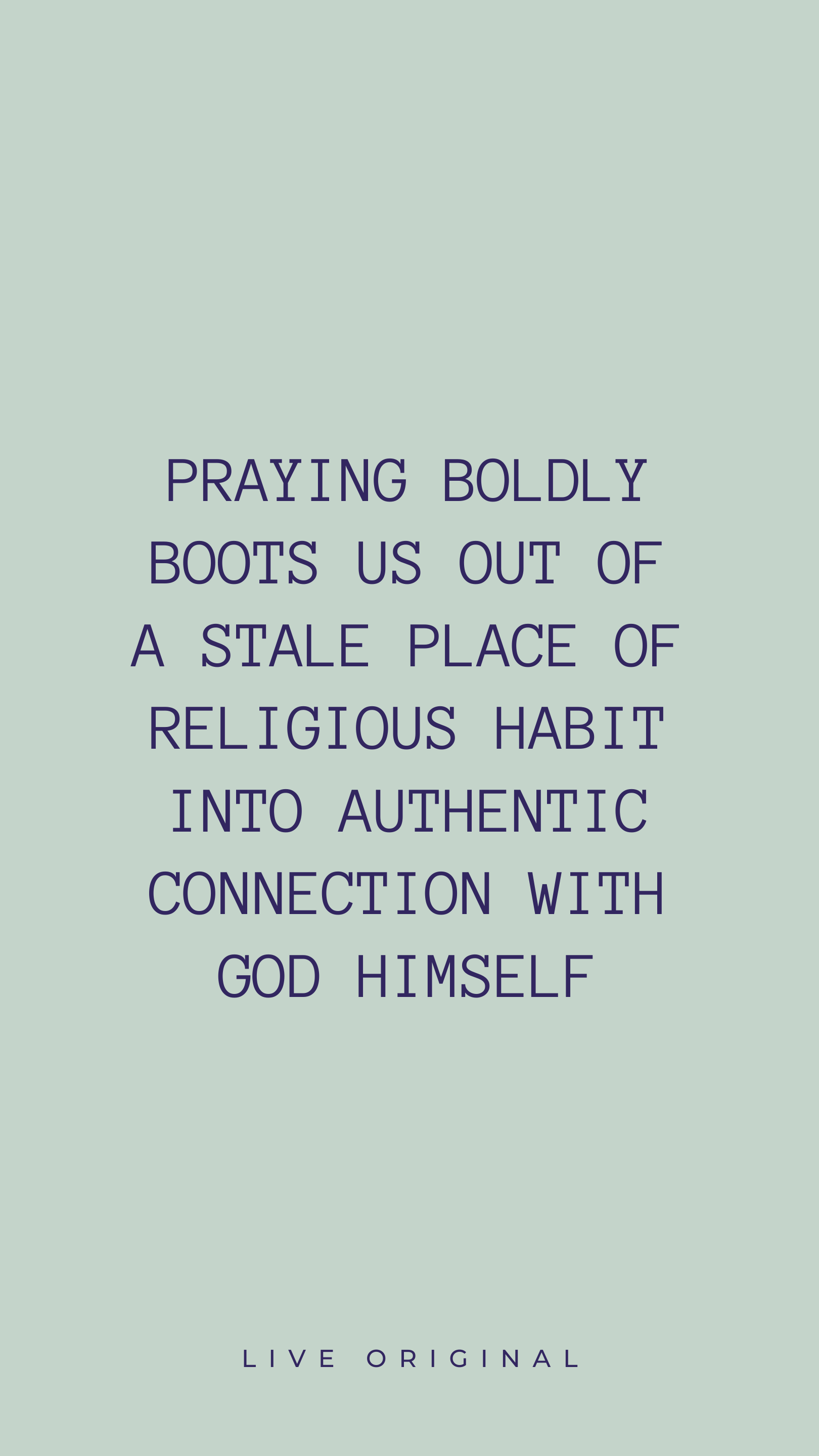
by Lysa TerKeurst | Dec 6, 2024 | 2, Featured, Homepage, LO Library, Trust
“Trust in the Lord with all your heart and lean not on your own understanding; in all your ways submit to him, and he will make your paths straight.” (Proverbs 3:5-6, NIV)
I’ve been studying the topic of trust lately. And what I’ve realized is that I attach a great deal of my trust in God to my desire for things to turn out like I think they should.
I want the goodness of God to compel Him to fix things, change minds, prevent hurt, punish the bad, and vindicate the good on my timeline. I want the goodness of God to make people who do hurtful things say they are sorry and then act better, do better, be better. I’m desperate for Him to make circumstances good in the timing that seems good to me.
But that’s not faith. It’s actually a sign that because I still don’t understand what he allowed to happen in my past, I’m struggling to trust him with my future. So I’ve started asking myself this question: Can I trust Him enough to really start surrendering the outcomes the way my life will go?
Proverbs 3:5–6 instructs, “Trust in the Lord with all your heart and lean not on your own understanding; in all your ways submit to him, and he will make your paths straight.” I know these verses, but I want to live these verses. And in order to do that, I must acknowledge God’s version of making my path straight most likely will not line up with what I expect.
Ugh. Can I do that? Can I make peace with the fact that my definition of a path being made straight is limited by my human thinking and emotion? Can I find my security in the unlimited, all knowing power of God?
Friend, as we sit with all of this, I’m reminded of this big, uprooted oak tree I once saw after some bad weather. It was a stately tree that appeared incredibly grounded and stable. But as I got closer to the fallen giant, I saw that when it fell, the roots were so shallow that they lifted out of the ground as well. As a crew was cutting up the tree to remove it, I saw that the tree was hollow on the inside. I just had to know: What made such a seemingly immovable tree fall? One of the men said, “Shallow roots and ants.”
“Huh?” I replied. He explained that sometimes big trees that grow in yards with sprinkler systems get so easily satisfied by the water from the surface that the roots don’t need to go deep into the ground for water. The trees can look strong and stable, but shallow roots make them less stable and way more vulnerable in storms and strong winds.
Oh boy. I could feel the life lesson coming in hot.
When life looks like I expect it to and feels relatively good, I am tempted to get satisfied with where I’m at and not continue to grow deeper and deeper in my faith. Or if I’m just letting others sprinkle some biblical wisdom on me through their sermons and podcasts but I’m not digging into God’s Word and going deeper in my application, then my roots will be shallow.
That all seems okay until a storm comes. And storms always eventually do come. The ants played a big part in this tree falling as well. They target where some sort of injury has occurred and the moisture that gets in has started to weaken the wood. Taking full advantage of the softer wood, they wear away at it, eventually even damaging the sound wood and making the tree hollow inside, even though it may look solid from the outside. The more hollow the tree becomes, the more it will lose structural strength.
Notice that the hollowing out of the tree and the tree having shallow roots happened slowly, daily, one compromise after another. I am a lot like that tree. But instead of trying to control things beyond my control, I want to make the choice to surrender them today to God. And then surrender again tomorrow. And the next day too. Refusing to control is an act of building more and more trust with God.
Each time I have doubts and fears about God’s goodness, I will bring these to God and let His truth refute them. My job is daily obedience to God. His job is holding and handling my future. This is a whole lot to think through. It’s weighty stuff. But for today, let’s hold onto this truth: Trusting God is holding loosely the parts of my life I want to hold most tightly. Is it easy? No. But is it the pathway to the peace I long for? Yes, it really is.
Lysa TerKeurst is president and chief visionary officer of Proverbs 31 Ministries and the author of seven New York Times bestsellers. Her latest book is I Want To Trust You, But I Don’t (October 2024, Thomas Nelson). She enjoys life with her husband Chaz and her kids and grandkids. Connect with her at www.LysaTerKeurst.com or on social media @LysaTerKeurst.
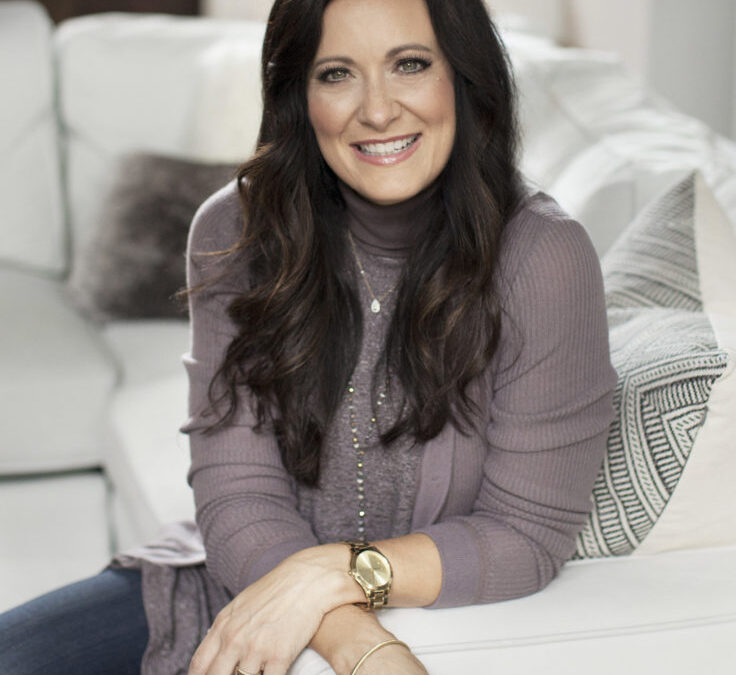
by Lysa TerKeurst | Apr 16, 2024 | Doubt, LO Library, Prayer, Wisdom
“The prayer of a righteous person is powerful and effective.” James 5:16b (NIV)
I have to admit I’m sometimes scared to pray boldly.
It’s not at all that I don’t believe God can do anything. I absolutely do. I’m a “wild about Jesus” kind of girl. Wild in my willingness. Wild in my obedience. Wild in my adventures with God.
So, my hesitation isn’t rooted in any kind of doubt about God.
It’s more rooted in a doubt about myself and my ability to absolutely discern the will of God. The reality is sometimes God chooses not to do things. And if His will is no, while I am boldly praying for a yes, it makes me feel out of step with God.
Can you relate?
I so desperately want to stay in the will of God that I find myself praying with clauses sometimes. Like, “God please heal my friend but if it’s Your will to take her, I will trust You.” I wonder why I don’t just boldly pray, “God, please heal my friend.” And then stand confidently that my prayers were not in vain no matter what the outcome.
The reality is, praying boldly boots me out of a stale place of religious habit into authentic connection with God Himself.
Prayer opens my spiritual eyes to see things I can’t see on my own. And I am convinced prayer matters. Prayers are “powerful and effective” if prayed from the position of a righteous heart, like James 5:16 says.
So, prayer does make a difference – a life-changing, mind-blowing, earth-rattling difference. We don’t need to know how. We don’t need to know when. We just need to kneel confidently and know that our simple, short prayers extend far wide and far high and far deep.
In case you’ve been wrestling through some unanswered prayers recently, lean in here: Keep pressing into God. Keep praying. Don’t pull away. He isn’t ignoring you; He is listening. He loves you too much to answer your prayers at any other time than the right time and in any other way than the right way.
Letting that truth slosh over into my soul, snuffs out the flickers of hesitation. It bends my stiff knees. And it ignites a fresh, bold wildfire within me. Not bold as in bossy and demanding. But bold as in I love Jesus with all my heart, so I want to show up and try again. Pray again. Ask again.
Look at these words from Jesus:
“But when you pray, go into your room, close the door and pray to your Father, who is unseen. Then your Father, who sees what is done in secret, will reward you. And when you pray, do not keep babbling like pagans, for they think they will be heard because of their many words. Do not be like them, for your father knows what you need before you ask him,” (Matthew 6:6-8, NIV).
Friend, what do you need to pray boldly about today? Don’t listen to fear – go ahead and ask. And ask again. Not so that we can cause God to move, rather so that we can position our souls to be able to see Jesus move in any which way He pleases.
Dear Lord, I believe that You are the giver of life and Lord over all things. Thank You for providing me with exactly what I need, even though it isn’t always what I may want. I trust that You have my best interest in mind today. I need You Lord. Show me Your way. In Jesus’ Name, Amen.
If we’re honest, when we’re already in a difficult season, connecting with God through praying and reading our Bibles can feel overwhelming. Lysa TerKeurst understands this struggle and has teamed up with other authors at Proverbs 31 Ministries to bring you a new devotional, Clear Mind, Peaceful Heart: 50 Devotions for Sleeping Well in a World Full of Worry. Written by busy women for busy women, this devotional is filled with 50 encouraging devotions, scripture verses and guided prayers, making it easier than ever for you to simply show up and spend time with God at the end of your day. Order your copy today!
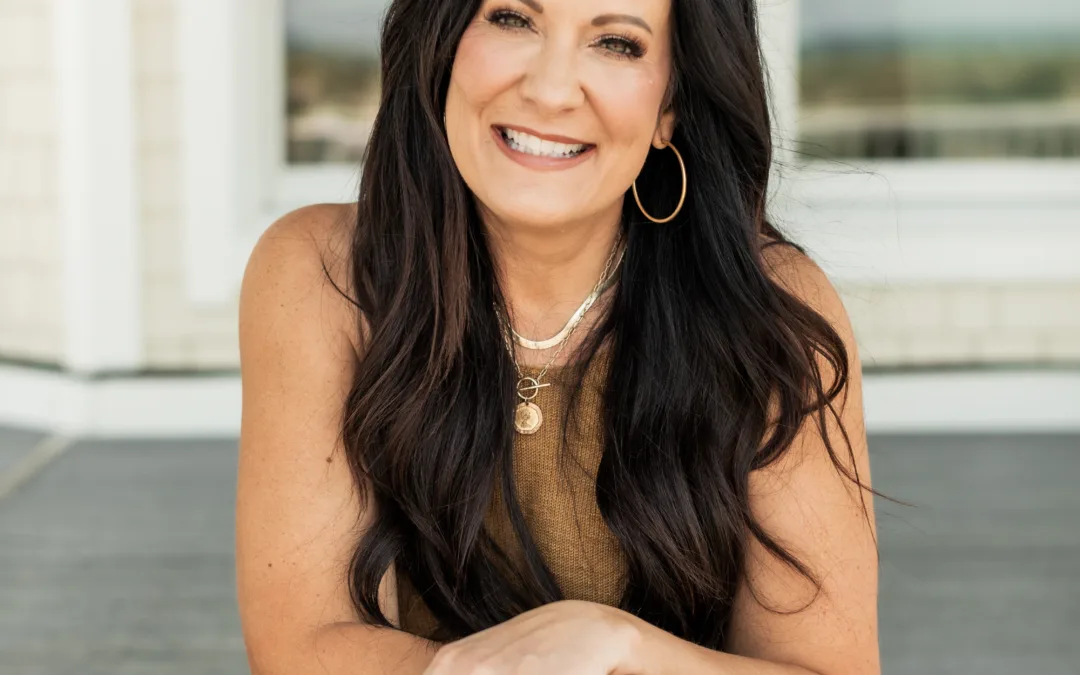
by Lysa TerKeurst | Mar 16, 2023 | Life Advice, Wisdom
“Let your speech always be gracious, seasoned with salt, so that you may know how you ought to answer each person.” (Colossians 4:6 ESV)
Sometimes God’s Word can feel like an impossible order, don’t you think?
Take the verse above for example: Paul told us we are to let our words “always be gracious.” The NIV actually reads “full of grace.” Full of it. As in, not sometimes gracious. A full atmosphere of graciousness even when the conversations are hard.
And that’s just about the moment when I admit I just want to lie down on the floor and loudly declare, “But I am not Jesus!” Ugh.
I don’t know about you, but sometimes gracious speech seems impossible for me. When someone’s hurtful words have landed like daggers in my heart, I want to defend myself. Maybe even attack back a bit. And point out how they’re misunderstanding my intentions. Not offer them gracious words. And even my most enjoyable relationships have moments where this doesn’t feel completely possible … Relationships are just messy.
I’ve been thinking about all of this as I’ve been on a recent journey of learning how to set and keep healthy boundaries in my relationships. It’s not easy. It’s hard to examine places of dysfunction, distress, distrust, and maybe even destruction within relationships with those you love.
When we’re in a difficult relationship or even a destructive one that isn’t sustainable, especially if addictions are involved, there does need to be a measure of grace and compassion. Because sometimes what is actually driving unhealthy behaviors in people is underlying shame or a lack of peace deep inside. Many times it’s both.
What I’m not saying is that because of grace and compassion, we condone or enable their actions and stay in situations where there’s harm being done. But what I am saying is that, as we take a step back, we can consider having grace and compassion for whatever caused the original root of shame and chaos in their heart that then drove them to try to act and react in such unhealthy ways. We don’t want the hurt they’ve caused to make us betray who we really are. We aren’t cruel or mean-spirited so we don’t want to bring any of that into our boundary setting.
I also want to have grace because I don’t have life so figured out that I never act and react in unhealthy ways. I have my own issues that I need to work on and work through with counseling. Learning to have grace and compassion appropriately, while still also having boundaries, continues to be one of my biggest lessons.
So, how can we really be gracious without excusing away hurtful behavior we’re experiencing? Or avoiding honest conversations we need to have?
We can bring truth into an atmosphere of grace. We can express what needs to be expressed, set a boundary that needs to be set, say what needs to be said and stay completely committed to the reality of truth.
But we can also foster it all in an environment of grace that never dishonors the other person. We can tell the hard truth, but we don’t have to say it in a harsh way.
This doesn’t mean we don’t say the hard things or set boundaries. It means we recognize we want conflict resolution instead of conflict escalation.
So, yes, Paul’s words to the Colossians remind us that our words should be gracious. But He also adds a clarifier that our words should be “seasoned with salt” (Colossians 4:6). In rabbinic tradition, this phrase would have been associated with wisdom. Paul was reminding the Colossians they were called to be people filled with godly wisdom. He wanted their words, and ours, to represent Jesus. And in order to do this, we can follow His model to pursue both grace and truth together.
I don’t know who puts grace to the test in your life or what conversations you need to be reminded to bring grace into. But I do know the Holy Spirit is willing to help us choose truth-filled words presented in a gracious way if only we will pause long enough and ask Him for help. Even as we have hard conversations, implement necessary boundaries and may our words reflect that we know Jesus, love Jesus and spend time with Jesus.
Father God, I want to pause for a moment and thank You for Your Son, Jesus. He could have held back His grace. But instead, He chose to pour out every single drop for me on the cross. So remind me that I give grace because I so desperately need it. Help me bring an attitude of grace into even the hardest of conversations. Give me wisdom in how to hold grace and truth together as I navigate difficult relationships in my life In Jesus’ name, amen.
Lysa TerKeurst is president of Proverbs 31 Ministries and the author of more than twenty-five books, including her latest book You’re Going to Make It: 50 Morning and Evening Devotions to Unrush Your Mind, Uncomplicate Your Heart, and Experience Healing Today (March 2023). She writes from her family’s farm table and lives in North Carolina. Connect with her at www.LysaTerKeurst.com or on social media @LysaTerKeurst.
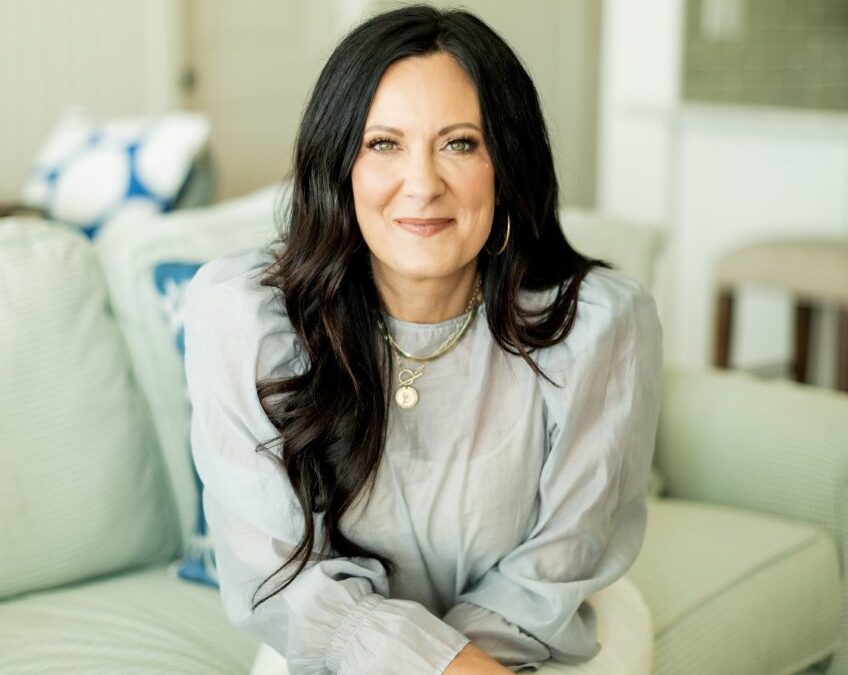
by Lysa TerKeurst | Nov 8, 2022 | Life Advice
“Humble yourselves, therefore, under God’s mighty hand that he may lift you up in due time.” 1 Peter 5:6 (NIV)
Ever feel like relationships are hard to navigate sometimes? Maybe today you find yourself trying to figure out a situation that’s complicated, messy and unpredictable?
I want to find the right words to help get on the other side of the conflict but that isn’t always possible. While talking is good, sometimes the conversations start running in a circle, and there aren’t any productive words left to say. When this happens, it can make a girl feel like giving up. But before I give up, I’ve learned spending time getting quiet before the Lord can really be the best remedy for tangled situations.
Taking a step back from all the emotion, frustration and exhaustion to sit quietly with Jesus will do more to untangle a mess than anything else I’ve ever found.
If you find yourself in a tough relationship situation today, here are five beautiful things I’ve found when I pause trying to fix it all and instead get quiet:
1. We can feel safe enough to humble ourselves.
In the heat of a mess, the last thing I want to do is get humble. I want to overexplain and prove my point. But I’m learning I have to step out of the battle and humbly ask God to speak truth to my heart for things to start to make sense. Never have I had a relationship issue where I didn’t contribute at least something to the problem. Usually, I can only see this something in the quiet.
1 Peter 5:6a, “Humble yourselves, therefore, under God’s mighty hand …” (NIV).
2. God will lift us up to a more rational place.
When we are in the heat of a tangled relationship, crazy emotions can drag us down into a pit of hopelessness. The only way out of the pit is to make the choice to stop digging deeper and turn to God for a solution.
1 Peter 5:6b, “… that he may lift you up in due time” (NIV).
3. Anxiety gives way to progress.
We can pour our anxious hearts out to Jesus who loves us right where we are, how we are. And because His love comes without judgment, we can feel safe enough to humbly admit we need Jesus to work on us. Trying to fix another person will only add to my anxiety. Letting Jesus work on me is where real progress can happen.
1 Peter 5:7, “Cast all your anxiety on him because he cares for you” (NIV).
4. We see our real enemy isn’t the person with whom we’re in conflict.
The truth is, we have an enemy, and it’s not each other. Satan’s influence on me and the person offending me is the real culprit. I can’t realize this in the heat of the moment. But in the quiet, I become alert and can gain a strategy for acting and reacting in a more self-controlled manner.
1 Peter 5:8-9a, “Be alert and of sober mind. Your enemy the devil prowls around like a roaring lion looking for someone to devour. Resist him, standing firm in the faith …” (NIV).
5. I can rest assured God will use this conflict for good — no matter how it turns out.
If I make the effort to handle this conflict well, I can be freed from the pressure to make everything turn out rosy. Sometimes relationships grow stronger through conflict. But other times, relationships end because of conflict. Because I can’t control the other person, I must keep focusing on the good God is working out in me through this and leave the outcome with Him.
1 Peter 5:10-11, “And the God of all grace, who called you to his eternal glory in Christ, after you have suffered a little while, will himself restore you and make you strong, firm, and steadfast. To him be the power for ever and ever. Amen.”
(NIV)
In the end, this struggle can be used by God to make me stronger and more capable in my relationships. If I am humble enough to receive from Him in the quiet what He wants to teach me through this, I can rest assured with whatever the outcome is.
Dear Lord, help me stop trying to figure this situation out and just sit in the quiet with You for a while. God, humble me. Show me Your steps toward restoration. Or show me Your steps toward a healthy parting. Take my anxiety and replace it with Your peace, wisdom and security. In Jesus’ Name, Amen.
Lysa TerKeurst is president of Proverbs 31 Ministries and the author of more than twenty-five books, including It’s Not Supposed to Be This Way and the #1 New York Times bestsellers Forgiving What You Can’t Forget and Uninvited. As one of the leading female Christian voices today, Lysa is a trusted source of wisdom who empowers women to really change their lives. To date, her books have sold more than ten million copies.

by Lysa TerKeurst | Mar 17, 2022 | Life Advice, Testimonies
“Listen to my words, Lord, consider my lament. Hear my cry for help, my King and my God, for to you I pray. In the morning, Lord, you hear my voice; in the morning I lay my requests before you and wait expectantly.” Psalm 5:1-3
I rolled over and looked at the clock. Another day. Beyond all reason and rationality, I slid out of bed and stripped off everything that might weigh even the slightest ounce as I headed to the scale.
I thought, “Maybe today will be the day the scale will be my friend and not reveal my secrets. Maybe somehow overnight the molecular structure of my body shifted and today I will magically weigh less.”
I yanked out my ponytail holder – hey, it’s gotta weigh something – and decided to try again. But the scale didn’t change its mind the second time. It was not my friend this day.
Vowing to do better, eat healthier, and make good choices, I headed to the kitchen only to have my resolve melt like the icing on the cinnamon rolls my daughter just pulled from the oven. Oh, who cares what the scale says when this roll speaks such love and deliciousness.
Two and a half cinnamon rolls later, I decided tomorrow would be a much better day to keep my promises to eat healthier. But tomorrow wasn’t the day. Or the next. Or the next.
I knew I needed to make changes. Because this wasn’t really about the scale or what clothing size I was; it was about this battle that raged in my heart. I thought about, craved, and arranged my life too much around food. So much so, I knew it was something God was challenging me to surrender to His control. Surrender to the point where I’d make changes for the sake of my spiritual health perhaps even more than my physical health.
I had to get honest enough to admit it: I relied on food more than I relied on God. I craved food more than I craved God. Food was my comfort. Food was my reward. Food was my joy. Food was what I turned to in times of stress, sadness, and even in times of happiness.
I knew this battle would be hard. But through it all I determined to make God, rather than food, my focus. Each time I craved something I knew wasn’t part of my healthy eating plan, I used that craving as a prompt to pray. I craved a lot. So, I found myself praying a lot.
Sometimes I wound up on the floor of my closet, praying with tears running down my face. And I gave myself permission to cry, just like the psalmist in Psalm 5:1-3, “Listen to my words, Lord, consider my lament. Hear my cry for help, my King and my God, for to you I pray. In the morning, Lord, you hear my voice; in the morning I lay my requests before you and wait expectantly.”
And that is literally what I did each day. Laid my requests before God and waited in expectation. Moment by moment, week by week, month by month, I made the conscious (and many times, painful) choice to surrender my desires to the transformative power the Lord wanted to work in and through my life.
Then, one morning, it finally happened. I got up and for the first time in a long while, I felt incredibly empowered. I still did the same crazy routine with the scale, no clothes, no ponytail holder. The numbers hadn’t changed much, but my heart had. One day of victory tasted better than any of that food I’d given up ever could. I had waited in expectation using prayer as my guide and I did it.
Have there still been hard moments after that victorious morning? Yes. Have there also been great signs of progress? Absolutely!
I can’t promise you there won’t be any more tears. There will. And I can’t promise the scale magically drops as quickly as you wish it would. It probably won’t. But it will be a start. A really good start.
Lysa TerKeurst is a #1 New York Times bestselling author and president of Proverbs 31 Ministries. Her latest book is I’ll Start Again Monday (January 2022). Lysa lives with her family in North Carolina. Connect with her at LysaTerKeurst.com or on social media @LysaTerKeurst.











